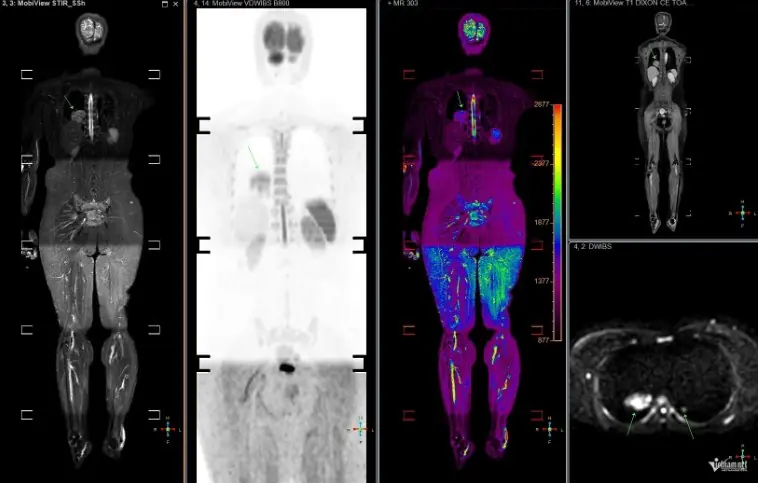
Researchers Explore Potential Dementia Risk Linked to Gabapentin

Gabapentin, an FDA-approved anticonvulsant commonly prescribed for nerve pain and seizures, is also widely used “off-label” for conditions such as fibromyalgia, sciatica, insomnia, anxiety, hot flashes, and chronic back pain. Its popularity stems from being considered a safer alternative to opioids. However, new research suggests extended use of the drug could carry cognitive risks.
Study Overview
A large-scale analysis published in Regional Anesthesia & Pain Medicine examined health data from more than 26,000 adults diagnosed with chronic pain, chronic pain syndrome, chronic lower back pain, or lumbar radiculopathy. This data was compared with an equally sized group not taking gabapentin. Participants were further divided into age groups (18–34, 35–49, 50–64, and 65+), and outcomes were tracked over a decade to assess the incidence of mild cognitive impairment (MCI), Alzheimer’s disease, or vascular dementia.
The findings revealed that patients with six or more gabapentin prescriptions faced a 29% increased risk of dementia and an 85% higher risk of developing MCI compared to non-users.
Age Groups at Highest Risk
Notably, the study found the strongest associations in younger adults. Among those aged 35–49, the risk of dementia was nearly double, and the risk of MCI was triple, compared to peers who did not use the drug. This was surprising, as dementia is generally associated with individuals over 65.
Lead researcher Nafis B. Eghrari, a medical student at Case Western Reserve University, explained that while the study does not prove causation, the results underscore the importance of further research into gabapentin’s long-term effects on brain health.
Limitations and Criticisms
As an observational study, several limitations must be acknowledged. Researchers did not control for other health conditions, concurrent medications, or lifestyle factors such as physical activity—an important protective factor against dementia. Experts also cautioned that variables like dosage and duration of treatment were not adequately accounted for.
Some specialists argue that other studies have found no such link, and more rigorous clinical trials are needed before drawing firm conclusions.
Clinical Implications
Despite the uncertainties, the authors recommend caution. Physicians prescribing gabapentin for chronic pain may consider routine cognitive assessments for patients on long-term therapy. Patients, meanwhile, should promptly report symptoms such as confusion, memory problems, or slowed thinking.
Gabapentin, like many medications, also carries other potential risks, including allergic reactions, mood changes, suicidal thoughts, jaundice, and blood in the urine. Patients are strongly advised not to stop the drug abruptly without medical guidance, as this may trigger seizures in those taking it for epilepsy.
Moving Forward
Researchers hope to explore whether gabapentin directly contributes to cognitive decline and, if so, identify the biological mechanisms involved. Until then, doctors and patients alike are urged to remain vigilant about the possible neurological side effects of long-term use.
News in the same category


From Despair to Mobility: Rescued Husky Vova Triumphs Against Adversity with New Wheels

Wife Diagnosed with Terminal Cancer Due to Her Husband’s Habit

She Thought She Saw A Happy Bird In The Woods, Then Suddenly Realizes Her Mistake

Doctor discusses the dangers of kissing someone who passed away and the health risks it can create

The Great Rift: How Africa is Slowly Splitting to Form a New Ocean

‘Zombie Squirrels’ with oozing flesh terrify U.S. homeowners

Celestial Jewelry: Moon Meets the Seven Sisters at Dawn

Tourist’s Selfie Stunt Turns Into Terrifying Crocodile Attack in the Philippines

The Hidden Power of Outdoor Play: How One Hour a Day Shapes Young Minds

Music and the Mind: How Playing Tunes to Babies Boosts Early Brain Development

People with green eyes are special for these reasons with…

Meaning Behind the Tradition of Coins on Gravestones

Japan’s Tooth Regrowth Drug: Dental Health Revolution!

Resilient Dog Overcomes Neglect and Thrives, Inspiring Change in Animal Welfare

9-year-old dies 10 minutes after posing with this note: Police soon discover terrible mistake that killed her

Witnesses speak out after passenger 'sliced open' as waterslide breaks on world's biggest cruise ship

Three beachgoers dead after sea mines wash up on beach and explode at popular tourist spot

Mom explains why she doesn’t regret giving her daughter’s pony to zoo to become lion food
News Post

A Decadent Delight: Strawberry Chocolate Cheesecake

Indulgence in a Glass: The Perfect Chocolate Strawberry Delight

Decadent Strawberry Chocolate Cupcakes

Chocolate Cupcakes with Berry Swirl Buttercream

Heartbroken dog digs grave for her de…ad puppy after trying to revive it

Build Your Juice: Natural Recipes for Health and Wellness

10 kinds of meat and how long to store them each in the freezer.

Transform Your Smile with Eggshells: The Surprising Natural Secret to Whiter, Stronger Teeth

Unleash Your Inner Strength: The Surprising Power of Purple Onion and Honey for Men Over 40

Tap Into Nature’s Secret: The Astonishing Benefits of Fig Sap You Need to Know

The Secret Superfood Hiding in Plain Sight: Unleash the Power of Bledo Blanco for Vibrant Health

Don’t Toss That Weed! 15 Reasons Purslane Is Your Secret Health Superstar

The Mighty Clove: Unlock Nature’s Secret Weapon for Infections, Hair Growth, and Fertility

Discover the Chayote Miracle: Your All-Natural Solution for Joint Pain, Swelling, Blood Pressure, and Cholesterol!

Unlocking the Hidden Power of Banana Flowers: 11 Surprising Remedies to Transform Your Health

Unlock the Power of Euphorbia Hirta: 30 Remarkable Health Benefits and Safe Usage Guide

Beware the Lethal Allure of Datura: A Beautiful but Deadly Danger

Boosting Fertility: The Surprising Power of Lifestyle on Semen Quality and Reproductive Health

Discover the Tropical Secret to Luscious, Youthful Hair: Papaya Leaves Unveiled
